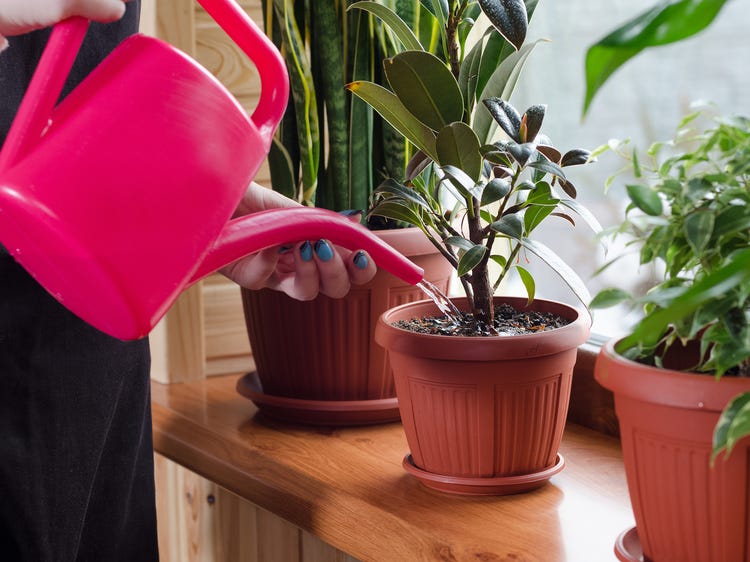
Don't have a green thumb? Or you're just not taking care of your plants in the proper way? Compare your plants to your pets, don't you think you're taking less care of them? Plants are living objects too; So just like your pets, they need proper caring as well. They need to be tended to carefully to live a long life!
Here are 6 reasons why your plants keep dying:

1. Improper Watering
Improper watering kills most plants. And as a plant parent, you have to remember the rules: water evenly and ensure water reaches the roots, water late in the evening or early in the morning, keep leaves dry to avoid diseases.
Choose a pot with drainage holes and choose the right potting mix for a healthy growth and better drainage.

2. Too Much or Little Sunlight
Plants need sunlight to thrive! But too much or little sunlight can harm your plant. Check the signs of plant overexposure and underexposure to sun and begin moving it to right location and light.
Knowing your plant's sunlight requirements ahead will help you plan for their optimal placement.

3. Root Rot and Fungal Disease
Root rot is caused by wet and poorly drained soil and fungi. Dormant fungi in soil flourish when the soil is wet and not properly drained for a long time, eventually attacking weakened roots.
The best root rot remedy is prevention. Avoid overwatering and make sure to use well-drained soil or improve the soil by adding soil amendments.

4. Insect Pests
Look closely for signs of insects. Some are difficult to spot like mealybugs, spider mites, and scales. To prevent further infestations, isolate the plant, remove and destroy the infected parts, and spray with an organic insecticide.
Note: Before using any insecticide, be sure to research first and choose the most effective and least harmful to you and your garden

5. Root Bound and Poor Soil Nutrients
Inspect your plant for signs of root bound. Root bound means roots get crowded causing the plant to choke to death eventually.
Remove it from its pot, gently loosen up and separate the roots. Then get a slightly bigger pot, a quality potting mix soil, and replant it.

6. Harmful Chemicals
Common household chemicals might be harming your plants. Make sure you don’t accidentally spray or spill these toxic substances to your plants.
Some chemicals can affect a plant's growth and its ability to take up nutrients from the roots.
Note: Improper use of chemical based fertilizers or pesticides can also be harmful to you and your plants. It is best to use gloves and masks whenever you use chemical based fertilizers or pesticides.
TIPS IN PROLONGING AND MAINITINING A HEALTHY PLANT:

Given that you already know what may have caused your plant to die, now is the time to exert maximum effort to secure it's long life! Here are measures you could follow to further take care of your plants:
- Use a quality potting mix or DIY mix
- Supplement plant growth with fertilizers & regular use of organic repellants as preventive measure
- Use appropriate pot size suitable for your plant
- For poorly lit environments, substitute with grow lights
Tip: Be more passionate about your house plants and it will help you understand them better.

